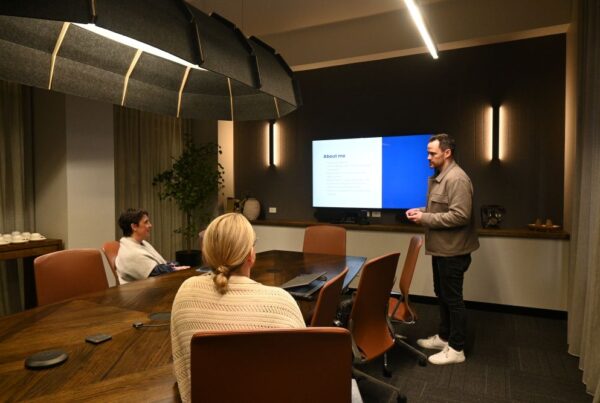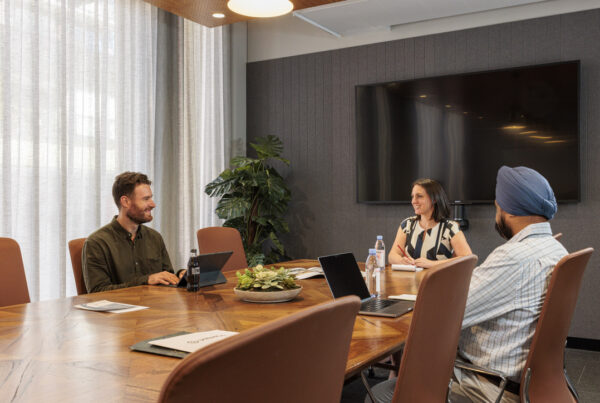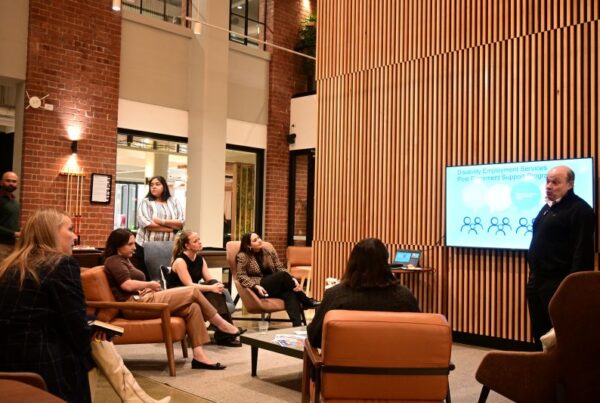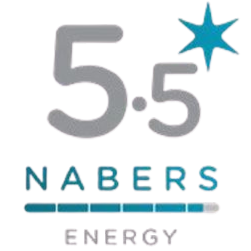
Accessibility should never be an afterthought, it should be embedded into every stage of event planning. Whether you’re organising a corporate seminar, community workshop, networking night, or hybrid conference, ensuring your event is inclusive, welcoming, and accessible to everyone isn’t just a nice-to-have; it’s essential. In this article, United Co. shares an accessible events guide designed to help event planners, HR teams, and workplace organisers take meaningful steps toward making events more inclusive. From physical space design to digital accessibility, we’ll walk you through the key considerations, practical tips, and resources to support your next inclusive event, whether it’s in-person, virtual, or hybrid.
Why Accessibility Should Be a Core Value in Event Planning
Accessibility goes beyond compliance, it reflects your values as an organisation. When you plan accessible events, you send a message that everyone belongs and that no one is left behind due to barriers, whether physical, sensory, cognitive, or digital. Here’s why accessibility matters:
- It expands your reach by accommodating diverse audiences.
- It supports your diversity, equity, and inclusion (DEI) goals.
- It aligns with legal obligations, such as Australia’s Disability Discrimination Act (DDA).
Most importantly, it creates a sense of dignity and belonging for all participants. By integrating accessibility from the start, you not only deliver a smoother experience for attendees with disabilities but you also make your event more enjoyable and navigable for everyone.
Physical Accessibility: Making Your Space Inclusive
If you’re hosting an in-person event, your venue needs to work for all guests, not just some. Physical accessibility is about creating an environment where everyone can move freely, independently, and safely. Use this checklist as a baseline:
- Step-free entrances, elevators, and wheelchair-accessible ramps
- Accessible toilets with grab bars and adequate turning space
- Wide aisles and doorways to accommodate mobility aids
- Reserved seating options for wheelchair users and companions
- Clear, high-contrast signage throughout the venue
- On-site accessible parking and public transport proximity
At United Co., our event spaces have been designed with these features in mind to ensure everyone can participate equally, without barriers.
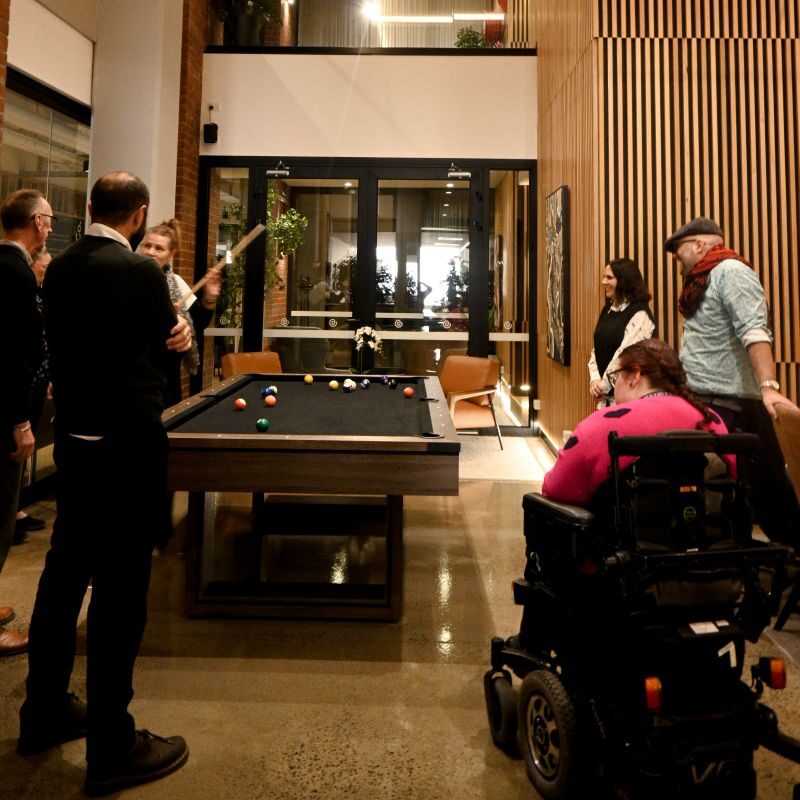
Read More About What Is Assistive Technology and Why Does It Matter at Work
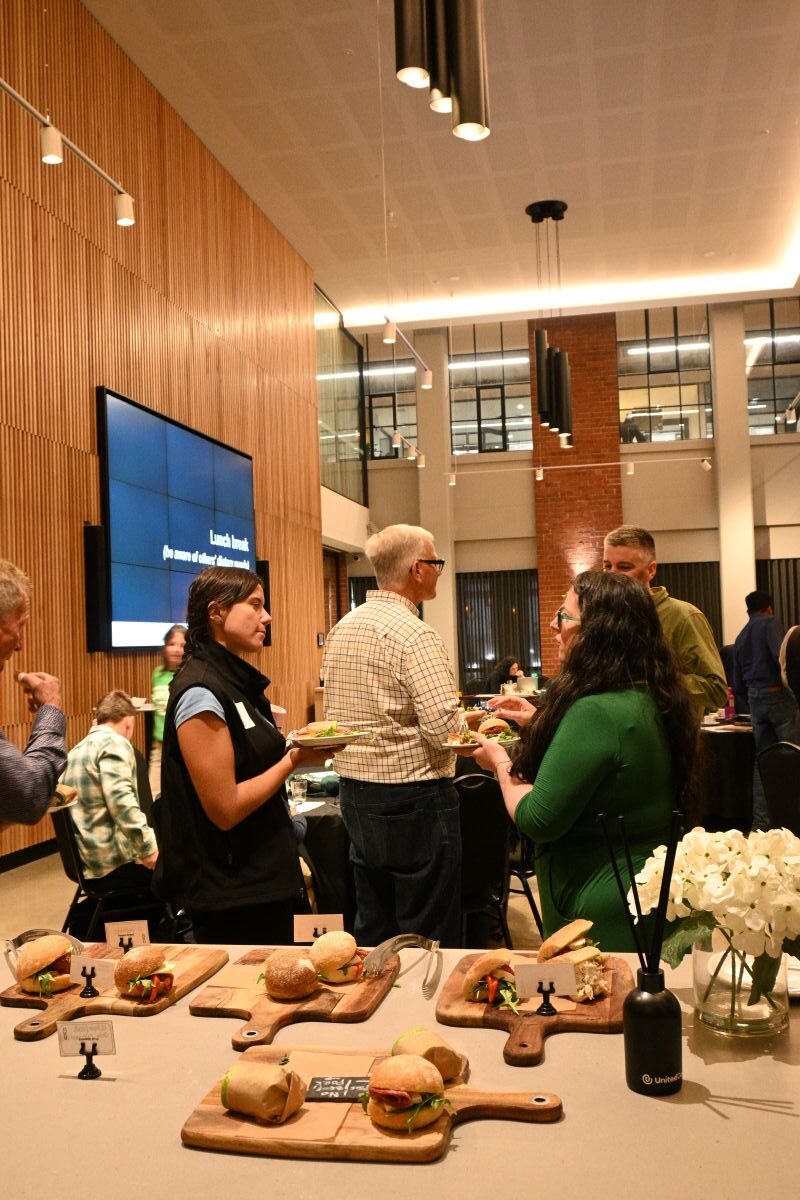
Communication Access and Inclusive Language
Inclusivity also means considering how information is shared. Attendees with hearing, visual, or cognitive disabilities often rely on alternative communication formats or support services. Here are some ways to make your communication more accessible:
- Use plain, easy-to-understand language in invitations, agendas, and handouts.
- Provide materials in multiple formats, such as large print, screen-reader compatible PDFs, or braille if requested.
- Hire Auslan interpreters for keynote sessions or workshops.
- Offer live closed captioning (human or AI-powered) for spoken presentations.
Including a communication access symbol or statement in your event materials shows your commitment and signals to attendees that support is available.
Sensory-Friendly Considerations
Many people, including those with autism, ADHD, PTSD, or sensory processing disorders, benefit from environments that minimise sensory overload. Sensory-friendly design doesn’t require a full overhaul, but small accommodations can make a big difference. Consider adding:
- A quiet room or low-stimulation space for breaks
- Optional noise-cancelling headphones at registration
- Dimmed lighting or natural light options, where possible
- Pre-event maps and schedules so attendees can mentally prepare
- Color-coded signage to help with navigation
A truly accessible events guide considers invisible needs just as much as visible ones. When we plan for sensory comfort, we create more respectful and humane experiences for all.
Read More About How to Run an Inclusive Office Workshop for Diverse Teams
Digital Accessibility for Virtual and Hybrid Events
Virtual or hybrid events open doors for remote participation, but only when thoughtfully designed for digital inclusion. Digital accessibility ensures that all attendees, including those with vision, hearing, or motor impairments, can fully engage with your content. Here’s how:
- Choose a platform that supports screen readers, keyboard navigation, and scalable text
- Provide live captions, transcripts, and sign language interpretation during sessions
- Add alt text to images and describe visuals used in presentations
- Make slide decks available for download in accessible formats (e.g., tagged PDFs)
- Offer recordings post-event with captions and transcripts
As hybrid formats become more common, making your digital environment accessible is just as important as your physical setup.
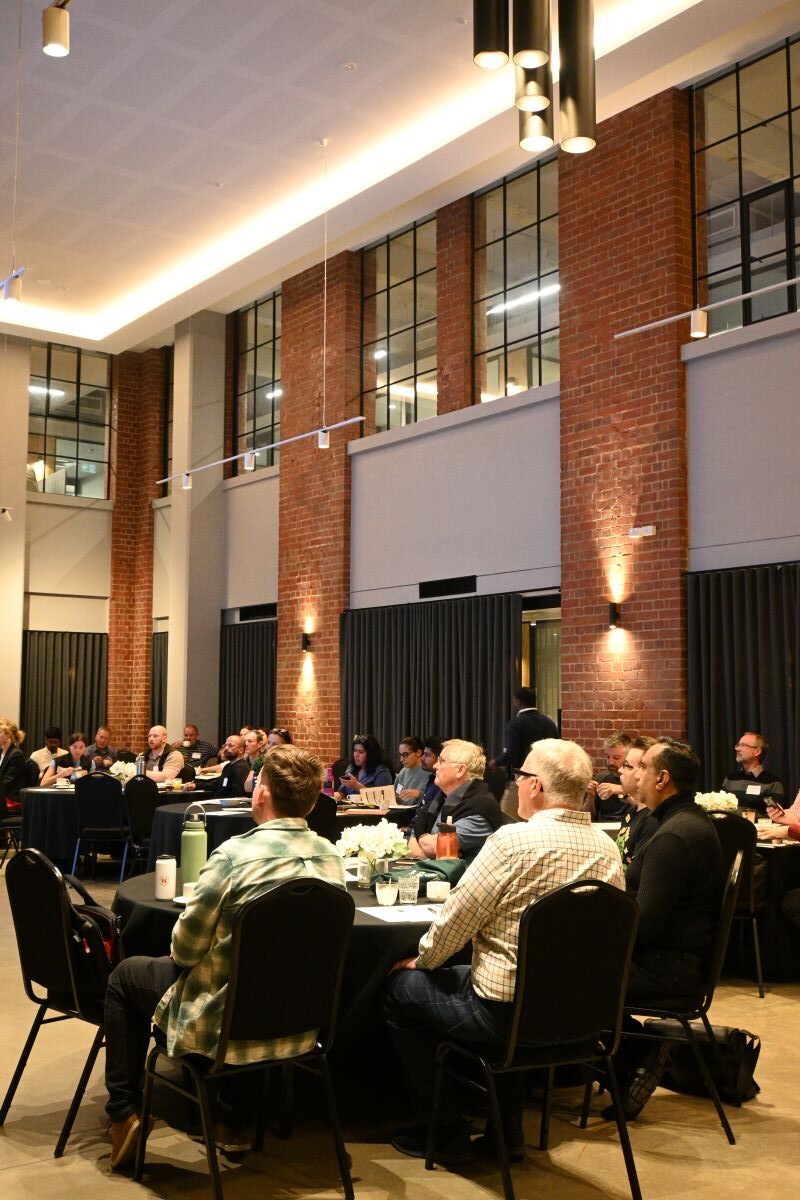
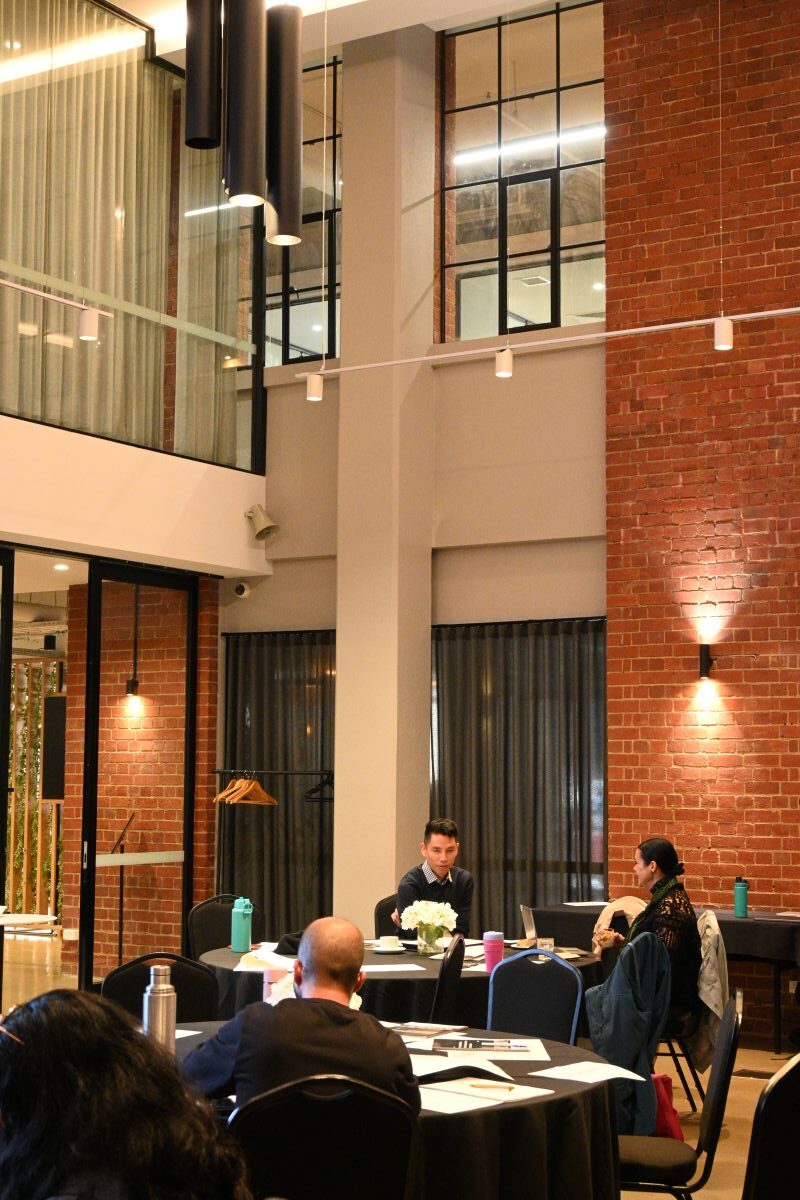
Planning: Registration, Staff, and On-the-Day Support
Accessibility starts well before the event begins. The registration process is a valuable moment to ask attendees about their individual needs (confidentially and respectfully) so you can plan accordingly. To support accessibility throughout the event:
- Include a field in your RSVP form for access requirements
- Assign a dedicated accessibility coordinator to your team
- Brief your staff and volunteers on disability etiquette, inclusive communication, and emergency procedures
- Ensure all accessibility services are signposted and easy to find
- A well-informed, empathetic team makes all the difference in delivering a welcoming experience for everyone.
After the Event: Feedback and Continuous Improvement
Accessibility is an evolving process. No event will be perfect, but the key is to listen, learn, and iterate. Ask participants:
- Were your access needs met?
- Did you feel included and supported?
- What could we do better next time?
By embedding accessibility into your post-event evaluation, you demonstrate that inclusion is a long-term priority, not just a checkbox.
Read More About The Best Time Management Tools for Every Work Style
Creating an inclusive event experience isn’t just about infrastructure or tech—it’s about empathy, intention, and community. A thoughtful approach to accessibility can elevate your event from good to outstanding, ensuring that every guest feels welcomed, valued, and empowered to participate.
At United Co., we’re proud to offer accessible event spaces that reflect this commitment. Whether you’re hosting a team workshop, product launch, or public seminar, our venues are designed to meet a variety of access needs, backed by an experienced events team ready to help you deliver inclusive experiences from start to finish. Explore our event spaces or speak to our team today to learn how we can help bring your next event to life, accessibly.
United Co.
425 Smith St. Fitzroy VIC 3065
Melbourne, Australia
Wurundjeri Country

